736
Inemuri: tradition to sleep on the job and on the way to her
In our culture to sleep outside the home (permanent or temporary place of residence) are not accepted. Except for the beach or parks where it is not forbidden to lie on the lawn sleeping on the street is allowed only in animals and babies, under the control of adults. However, you should not assume that sleep is immoral in any culture.
In the culture of the Japanese cities the phenomenon of "inemuri" that is translated as "to sit and to sleep." Inemuri is the practice of daytime sleep in public places (transport, meeting, workplace). In contrast, our society encourages Japanese inemuri because it is a sign that the person sleeps little and works a lot at home.

Inemuri ( 居眠, "sit and sleep") — practice NAP at work, in public transport and other public places. According to Japanese traditions inemuri not forbidden, but rather encouraged by the society, being a sign that the person sleeps little, as a lot of work. The only exceptions are the cases that threaten public safety.
Long working hours and stress can contribute to health, therefore, short periods of sleep can enlighten the mind and help clarify ideas. Ideally, such a sleep should last at least a few minutes, and a 20-30 minute period of sleep in the middle of the day can be very pleasant. Inemuri is a light sleep from which it is very easy to Wake up.
It is believed that a kind of quiet time in the workplace (while maintaining the vertical position) is a sign of good faith, therefore, before the Japanese white collar workers there is a problem of entirely different kind: how to simulate a plausible inemuri to the chief believed in their imaginary hard work.
In Japan, people sleeping on the street or in the subway, does not cause anyone around us condemnation. People treat this situation with understanding, gentleness, and even respect. This behavior, the Japanese do not consider it shameful because after a short sleep, a person begins to work better. Sleep during inamuri must demonstrate social involvement, in other words people can sleep standing in the bus, sitting at the meeting in the chair so that the outside the impression of his participation in the ongoing action.
During inemuri great importance is social status. So, if the slave is sleeping in front of your boss, then this is unacceptable, if the boss is sleeping in front of their subordinates, then there is nothing vospalitelnoe. By the way, many Japanese people often just mimic your sleep to make a joke or give the significance and importance of the person in the eyes of others.
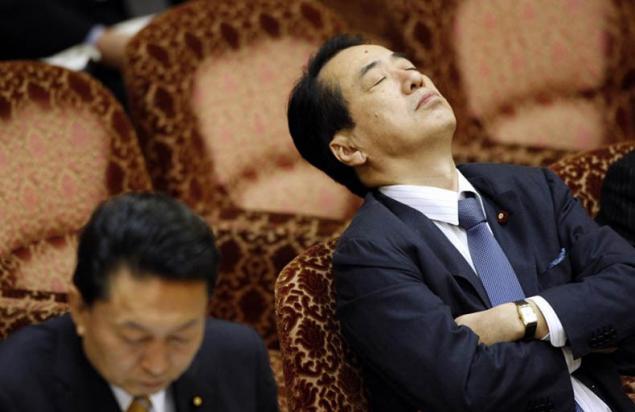
So, in practice during the working day can only sleep the chiefs of sections or departments. But after the end of the day when everyone left for processing (at least, until then yet will not go home authority), is allowed to NAP for half an hour to anyone who is ready to then abruptly Wake up and work another hour or two.
Those who get home far, can stay in the workplace until the morning, if that is allowed by company policy (up to sleep on the table), or... to go to the bath. In big cities like Tokyo or Osaka or Kobe there are many cozy baths with bedding. There, after a hero of the labor front goes on the shelf (like in a car), asking the attendant to Wake him up early in the morning and goes back to work. Thus, many of those who work in the city centre, get home towards the end of the week.
In large Japanese cities — the usual pattern in the morning to see on the pavement of the sleeping clerk in the civil suit, next leather briefcase or laptop lying around. If a COP passes by — on handbag or laptop will move closer to the sleeper, sometimes by put the head and gently corrected scattered on the pavement hands and feet, did not come to citizens.
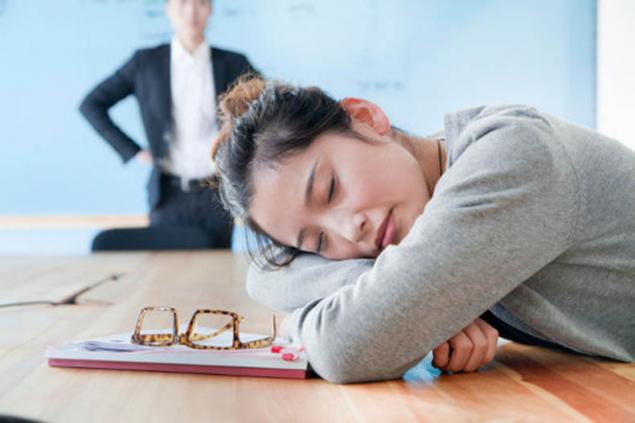
Head of Department ― a man of about 50 years, continuously the processing at the end of the day, a lot of drinking at corporate parties and little sleep at home. Therefore, while there is no visitors, the boss is quite often bite nose, especially after dinner. In these moments subordinates can relax a little ― no one will follow their zeal, to cry and straighten. Therefore, the dream of the chief (a length from an hour to an hour) everyone is welcome and protected. Although and pretend that nothing has noticed. Another thing is that sleeping boss sensitively: it can (and should) Wake up on the first call or the call of the slave, or visitor. So all around staying alert.
If you can't sleep at work, sleep in transport
In trains ― especially after a day of all sleep side by side. In law-abiding Japan, it is perfectly safe, no one is afraid of being robbed or hurt. If your shoulder suddenly head falls asleep next door neighbor on the chair, the right is considered to give the person to sleep. Today it will tolerate you, but tomorrow it is you. With the exception of shy ladies. If a passenger accidentally fallen asleep, his head slumped on the shoulder of a neighbour to the man, she immediately stiffens, straightens up, briefly apologizes and keeps himself in his hands for about five minutes until it again don't get seasick. And then the whole scene repeats itself from the beginning... my advice to you: in the evening Japanese trains better near women places not to take. And do not get enough sleep, and all around exhausted. Straight trouble...
Sleeping on the same standing special. So the good picture that you drew once Haruki Murakami about why Japan is so popular books in soft covers.
"The average Japanese spends every day for 2-3 hours in the train to work and back. And that's the time he spends reading. In one hand a handrail not to fall in the other book. In this case, you will doze off, especially at the end of the day, then Wake up and continue reading. If the book is heavy from the hand will fall out, look for it later under everyone's feet. And then someone's head will fall... So the best selling books in Japan — light pocket books the size of a palm. Any novel is divided into such pocket books ― two or three volumes of small format. No matter how long the book as a whole, most importantly, to easily hold it in one hand."
If you can't sleep on the job and in public transport, sleep on the street
Residents of big cities who are late after midnight on the last train in the subway (especially after the festivities on Friday and Saturday) crawl into bed on benches near the station. Side by side. In this case, if cool, total strangers can gently snuggle up to each other to mutually keep warm. Because everything happens in front of everyone, anyone and would never allow any obscenity. Men share benches with men, women with women, a sweet couple "nest" in an embrace. And all quietly sleep in anticipation of the first train arriving with the sunrise somewhere after 5 am.
And in Europe...
Senior lecturer in modern Japanese studies at Cambridge, Brigitte Steger examines this habit, and devoted a number of publications. She recently presented its concept in London the Japan Foundation in the presence of several experts from sleep.
Robert meadows, a specialist in the field of sleep from the University of Surrey, said that the practice of inemuri contrasts with the traditionally negative attitude to day-dream in Britain, where it is believed that "sleep is for wimps."
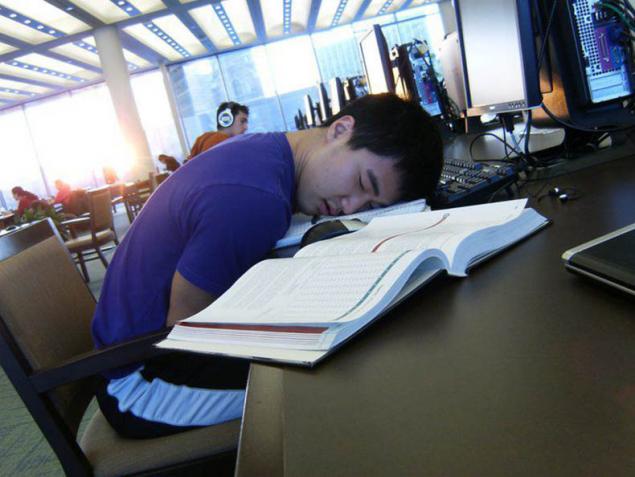
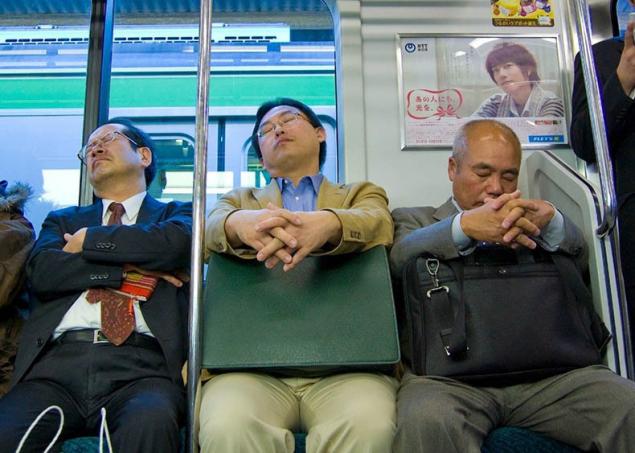
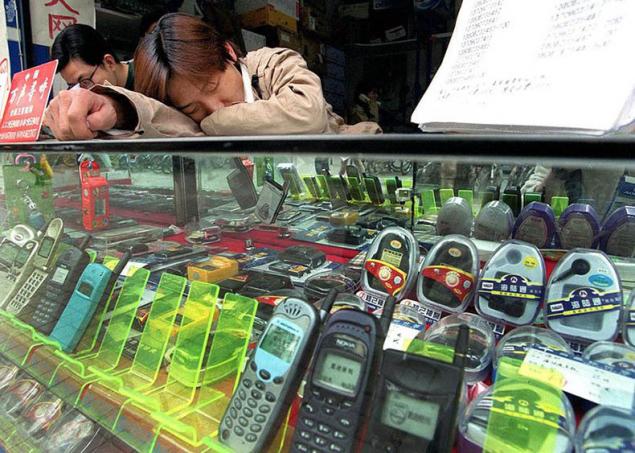
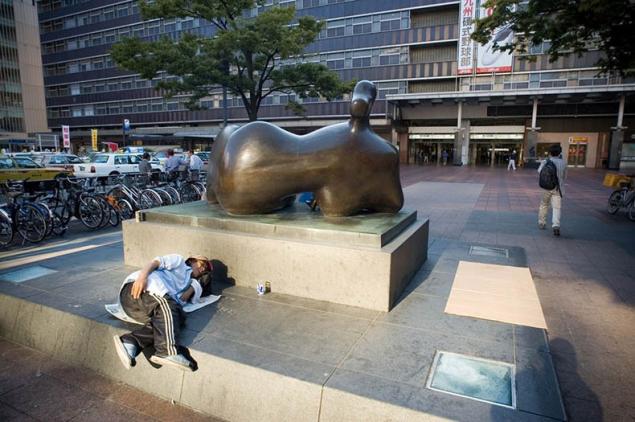
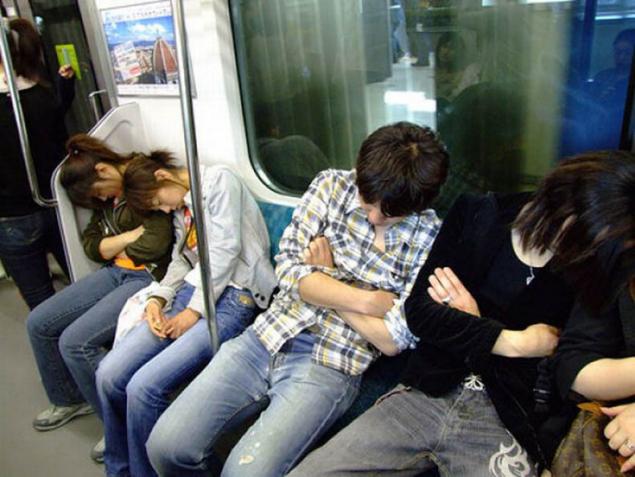
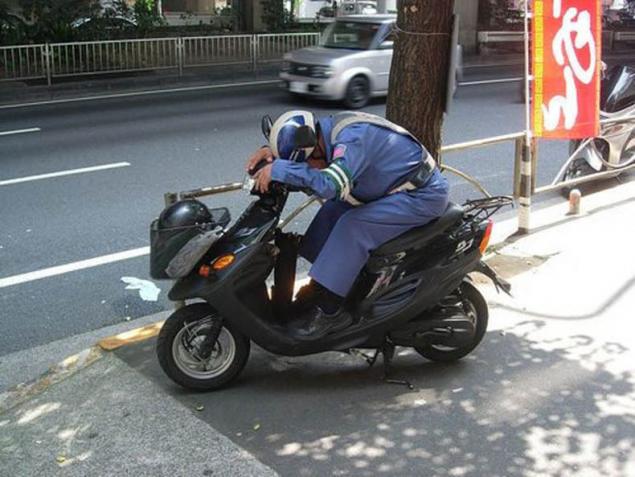
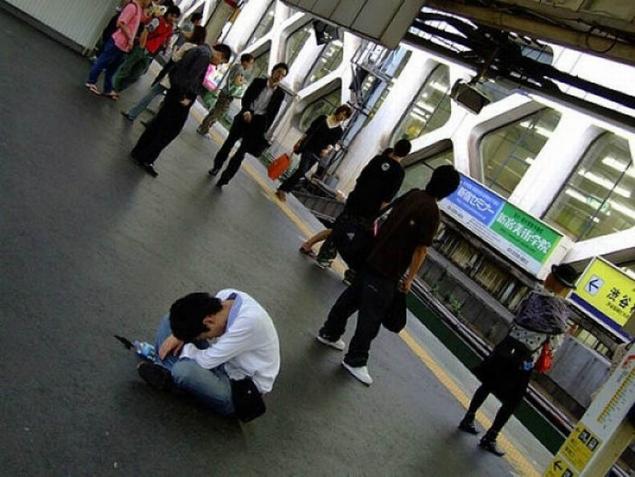
published
Author: Andrey Blueskin
P. S. And remember, only by changing their consumption — together we change the world! ©
Join us in Facebook , Vkontakte, Odnoklassniki
Source: www.beloveshkin.com/2015/12/inemuri.html
In the culture of the Japanese cities the phenomenon of "inemuri" that is translated as "to sit and to sleep." Inemuri is the practice of daytime sleep in public places (transport, meeting, workplace). In contrast, our society encourages Japanese inemuri because it is a sign that the person sleeps little and works a lot at home.

Inemuri ( 居眠, "sit and sleep") — practice NAP at work, in public transport and other public places. According to Japanese traditions inemuri not forbidden, but rather encouraged by the society, being a sign that the person sleeps little, as a lot of work. The only exceptions are the cases that threaten public safety.
Long working hours and stress can contribute to health, therefore, short periods of sleep can enlighten the mind and help clarify ideas. Ideally, such a sleep should last at least a few minutes, and a 20-30 minute period of sleep in the middle of the day can be very pleasant. Inemuri is a light sleep from which it is very easy to Wake up.
It is believed that a kind of quiet time in the workplace (while maintaining the vertical position) is a sign of good faith, therefore, before the Japanese white collar workers there is a problem of entirely different kind: how to simulate a plausible inemuri to the chief believed in their imaginary hard work.
In Japan, people sleeping on the street or in the subway, does not cause anyone around us condemnation. People treat this situation with understanding, gentleness, and even respect. This behavior, the Japanese do not consider it shameful because after a short sleep, a person begins to work better. Sleep during inamuri must demonstrate social involvement, in other words people can sleep standing in the bus, sitting at the meeting in the chair so that the outside the impression of his participation in the ongoing action.
During inemuri great importance is social status. So, if the slave is sleeping in front of your boss, then this is unacceptable, if the boss is sleeping in front of their subordinates, then there is nothing vospalitelnoe. By the way, many Japanese people often just mimic your sleep to make a joke or give the significance and importance of the person in the eyes of others.

So, in practice during the working day can only sleep the chiefs of sections or departments. But after the end of the day when everyone left for processing (at least, until then yet will not go home authority), is allowed to NAP for half an hour to anyone who is ready to then abruptly Wake up and work another hour or two.
Those who get home far, can stay in the workplace until the morning, if that is allowed by company policy (up to sleep on the table), or... to go to the bath. In big cities like Tokyo or Osaka or Kobe there are many cozy baths with bedding. There, after a hero of the labor front goes on the shelf (like in a car), asking the attendant to Wake him up early in the morning and goes back to work. Thus, many of those who work in the city centre, get home towards the end of the week.
In large Japanese cities — the usual pattern in the morning to see on the pavement of the sleeping clerk in the civil suit, next leather briefcase or laptop lying around. If a COP passes by — on handbag or laptop will move closer to the sleeper, sometimes by put the head and gently corrected scattered on the pavement hands and feet, did not come to citizens.

Head of Department ― a man of about 50 years, continuously the processing at the end of the day, a lot of drinking at corporate parties and little sleep at home. Therefore, while there is no visitors, the boss is quite often bite nose, especially after dinner. In these moments subordinates can relax a little ― no one will follow their zeal, to cry and straighten. Therefore, the dream of the chief (a length from an hour to an hour) everyone is welcome and protected. Although and pretend that nothing has noticed. Another thing is that sleeping boss sensitively: it can (and should) Wake up on the first call or the call of the slave, or visitor. So all around staying alert.
If you can't sleep at work, sleep in transport
In trains ― especially after a day of all sleep side by side. In law-abiding Japan, it is perfectly safe, no one is afraid of being robbed or hurt. If your shoulder suddenly head falls asleep next door neighbor on the chair, the right is considered to give the person to sleep. Today it will tolerate you, but tomorrow it is you. With the exception of shy ladies. If a passenger accidentally fallen asleep, his head slumped on the shoulder of a neighbour to the man, she immediately stiffens, straightens up, briefly apologizes and keeps himself in his hands for about five minutes until it again don't get seasick. And then the whole scene repeats itself from the beginning... my advice to you: in the evening Japanese trains better near women places not to take. And do not get enough sleep, and all around exhausted. Straight trouble...
Sleeping on the same standing special. So the good picture that you drew once Haruki Murakami about why Japan is so popular books in soft covers.
"The average Japanese spends every day for 2-3 hours in the train to work and back. And that's the time he spends reading. In one hand a handrail not to fall in the other book. In this case, you will doze off, especially at the end of the day, then Wake up and continue reading. If the book is heavy from the hand will fall out, look for it later under everyone's feet. And then someone's head will fall... So the best selling books in Japan — light pocket books the size of a palm. Any novel is divided into such pocket books ― two or three volumes of small format. No matter how long the book as a whole, most importantly, to easily hold it in one hand."
If you can't sleep on the job and in public transport, sleep on the street
Residents of big cities who are late after midnight on the last train in the subway (especially after the festivities on Friday and Saturday) crawl into bed on benches near the station. Side by side. In this case, if cool, total strangers can gently snuggle up to each other to mutually keep warm. Because everything happens in front of everyone, anyone and would never allow any obscenity. Men share benches with men, women with women, a sweet couple "nest" in an embrace. And all quietly sleep in anticipation of the first train arriving with the sunrise somewhere after 5 am.
And in Europe...
Senior lecturer in modern Japanese studies at Cambridge, Brigitte Steger examines this habit, and devoted a number of publications. She recently presented its concept in London the Japan Foundation in the presence of several experts from sleep.
Robert meadows, a specialist in the field of sleep from the University of Surrey, said that the practice of inemuri contrasts with the traditionally negative attitude to day-dream in Britain, where it is believed that "sleep is for wimps."







published
Author: Andrey Blueskin
P. S. And remember, only by changing their consumption — together we change the world! ©
Join us in Facebook , Vkontakte, Odnoklassniki
Source: www.beloveshkin.com/2015/12/inemuri.html
6 ways not to get better during the holidays
BMW in 2020 will release a flagship 9 Series and electric i6























